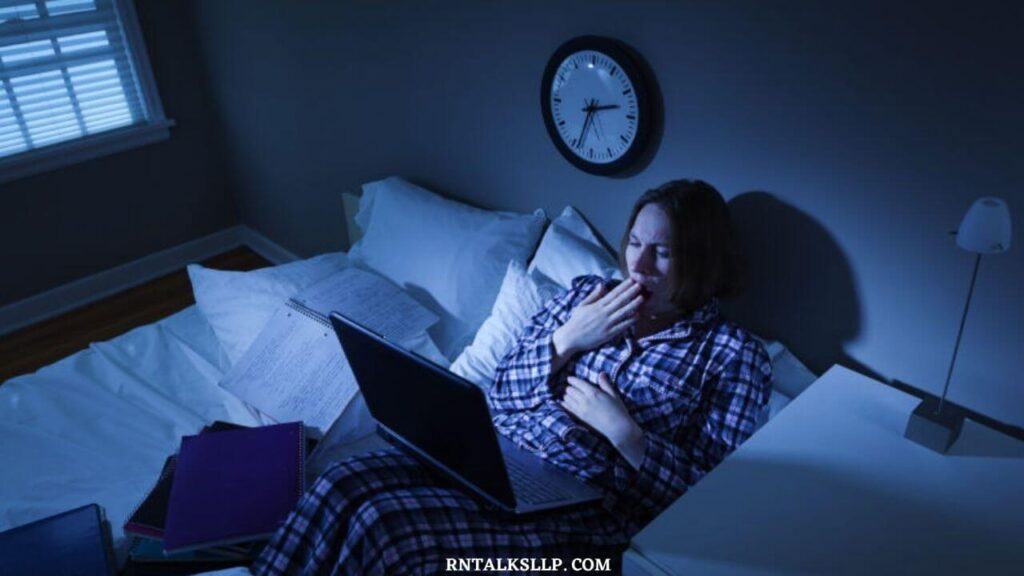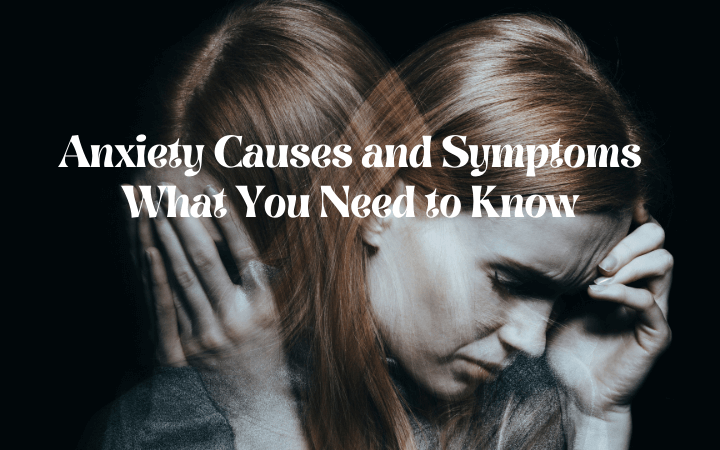Every purchase made through our affiliate links earns us a pro-rated commission without any additional cost to you. Here are more details about our affiliate disclosure.
Nocturnal Panic Attacks: Manifestation Causes And Remedy Of Nocturnal Panic Attacks
Nocturnal panic attacks occur at night and can be extremely disturbing. They can be paralyzing and terrifying.
This article is loaded with practical tips to help you understand night panic attacks, overcome them, and overcome your fear of the dark in the future.
What Are Nocturnal Panic Attacks?

Nocturnal panic attacks happen when you wake from your sleep while in the midst of a full-blown panic attack.
The experience is very similar to having a panic attack while awake. Almost everything about the nocturnal panic attack, from the symptoms to the intensity, is almost identical.
However, despite the fact that it might seem you are waking up from a nightmare, these attacks can happen during any part of your sleep cycle.
What Causes Nocturnal Panic Attacks?

Nocturnal panic attacks are a very common occurrence for people who have suffered from anxiety and/or panic disorder.
Everyone has experienced a bad dream or nightmare, but what separates nocturnal panic attacks from nightmares is that you wake up during the middle of your sleep while in the midst of an intense attack.
Nocturnal panic attacks are a reaction to the buildup of stress, anxiety, and fear throughout your day.
These feelings stay within you even after you go to sleep, leaving you vulnerable to wake up during an intense panic attack.
This is why nocturnal panic attacks can happen any time of the night or any part of the sleep cycle.
For some people, it doesn’t matter whether they are asleep or awake, a panic attack can occur.
Other factors that may contribute to the occurrence of nocturnal panic attacks are sleep apnea and/or restless leg syndrome.
Sleep apnea occurs when you stop breathing for brief periods during your sleep which causes an extreme disruption in your sleep cycle. This can cause you to wake in the middle of a panic attack.
Restless leg syndrome causes you to move your legs at night for relief from uncomfortable feelings.
Some people find this helpful, but others have found that they wake up while doing so and it leads to a full-blown panic attack.
These attacks are uncontrollable once they happen and can be very disruptive to your life.
It’s important to speak with your GP (general physician) regarding your sleep patterns and other factors that may be contributing to nocturnal panic attacks.
Nocturnal panic attacks are not dangerous, but they are disruptive and potentially debilitating. If you experience them frequently, seek help and start taking steps toward recovery.
Your GP may be able to provide you with ways to help prevent these attacks and/or therapies to help alleviate your symptoms.
How Can I Stop Nocturnal Panic Attacks?

Don’t worry, even if you have a nightly occurrence of nocturnal panic attacks, you can take steps to reduce the likelihood of having these attacks, soothe your symptoms, and live a normal life.
Since you wake from sleep when an attack occurs it is important that you get the proper amount of rest each night to prevent them altogether.
You may have to make some small adjustments to your lifestyle and schedule, but it is worth the effort to live a life free of nocturnal panic attacks.
How Will I Know If A Nocturnal Panic Attack Is Coming?

Having an idea of what triggers your anxiety during the day can help you preempt potential symptoms from developing into full-blown panic attacks. You should also be aware of your triggers in the evenings.
If you are prone to an increase in stress and anxiety during the day, then chances are that you may experience a worsening of symptoms at night.
For many people who have nocturnal panic attacks, their anxiety is heightened when they go to bed for sleep or even right before it.
A way to help prevent nocturnal panic attacks is to try and decrease your stress levels during the day.
This can assist you to sleep better at night because it will be easier for you to fall asleep and stay asleep.
It is also a good time to try out some relaxation techniques that you have learned throughout your therapy sessions, such as deep breathing or self-hypnosis.
How Does A Nocturnal Panic Attack Manifest Itself?

It is crucial and important to be able to recognize the signs of a nocturnal panic attack so that you can know when one is coming on and how best to deal with it.
The easiest way to accomplish this is and avoid another attack is through journaling during your therapy sessions.
Keep track of what triggers your anxiety and when you think a panic attack is coming on. That way you can try to preempt it before it happens.
You should also be aware of your sleep cycle throughout the night and how that may contribute to the occurrence of nocturnal panic attacks.
If you are prone to waking up in the middle of the night, then that’s an indication that there is something interrupting your sleep pattern.
A nocturnal panic attack will be one of the following:
- A spontaneous awakening from sleep.
- A recurring dream about a strong feeling of fear or impending doom.
The severity of these attacks can range anywhere from a mild sense of uneasiness to being completely debilitated.
What Should I Do If I’m Having A Nocturnal Panic Attack?

First of all, you don’t need to worry about the severity of your symptoms as they are just as harmless as their daytime counterparts.
The reason that they are so scary is that they occur while you’re asleep and most people aren’t used to waking up in the middle of the night.
It is important that you get out of bed immediately, even if it’s just for a few seconds to let your body know that you are aware and in control of your situation.
You need to re-orient yourself and realize that there is no danger present. Going to the washroom and relieving yourself might help break the cycle. That way when you go back to sleep, your anxiety will not escalate.
What If The Symptoms Of My Nocturnal Panic Attack Get Worse?

If you suffer from symptoms, getting out of bed and moving around, even slightly, is the best thing you can do.
You also need to stay calm and remember that there is nothing to fear. That way you will avoid having a full-blown panic attack while you sleep.
If the symptoms don’t subside after getting out of bed, then there are a few things that may help:
- Deep breathing through the nose – If you get light-headed during this, then breathe through your mouth instead.
- Lean on your side to relieve pressure on your abdomen and slow your breathing by focusing on lowering the volume of your exhalations.
- Watch a peaceful scene on a video or even just look at pictures in a magazine.
- Listen to some soothing music or chants. Alternatively, you can listen to the audiobook while you fall asleep or use a CD that is sold at most bookstores and pharmacies.
- After the attack is over, review what you were thinking about before it started and record those thoughts in your journal to use as an example of how stress can manifest itself into anxiety.
- You should try to implement some form of guided imagery for your anxiety when you go to bed. It’s best to use imagery that is relaxing, but not too intense (think sunsets, rainbows, kittens…) because those are more conducive to sleep.
- You can read a book until you are drowsy enough to fall asleep if you are having trouble sleeping after you do the imagery.
What If I’m Afraid Of Having A Nighttime Panic Attack?

If it were just going to bed and not waking up, then I wouldn’t worry about it too much. The likelihood that you’ll have a panic attack at night is slim to none.
However, if your fear is escalating out of control in any way or preventing you from getting some rest, then you may want to ask your doctor for sleeping pills until the situation improves.
Although, there may be something else that is leading up to your waking up in the middle of the night beside a panic attack.
If you tend to have insomnia or are experiencing a lot of stress, then…
- You should consider practicing relaxation techniques before retiring for the night.
- You may also want to see if drinking alcohol affects your sleep.
- You may have to make a few changes in how you’re sleeping currently, but the results are well worth it.
- If your anxiety is still affecting your sleep and now preventing you from getting any rest or relaxation during the day, then I suggest you get some over-the-counter medication that is meant to relax your muscles and stress. Ask your GP to prescribe them.
The last resort is to consider seeing a doctor that can prescribe something stronger for you.
What If It Takes Me Forever To Fall Asleep After I Have A Night-time Panic Attack?

Some of the strategies you can use to increase your chances of falling asleep faster include:
- Pamper yourself with a warm bath before you decide to hit the bed. The warmth of the water should help your muscles relax and let you slip into a sleepier mood.
- Try doing some light exercise like walking around the block before going to bed.
- Drinking alcohol may help you fall asleep more quickly, but only if it’s not affecting your sleeping pattern in a negative way otherwise you’ll be trading one problem for another.
- Therefore, I always recommend that you start off by taking a low dosage and only increasing it if you need more than the previous dosage to reach your desired state of relaxation.
- Read a book, and have some hot tea or warm milk before going to bed.
- Go to sleep earlier as often as possible so that the bedtime routine becomes familiar.
- Keep trying to wake up at the same time and try to keep your routine as similar as possible between going to sleep and waking up.
If you’re not sure what’s causing you not to fall asleep, then ask yourself these questions:
What am I doing right before bed?
What kind of materials do I read in bed?
Do I have a heavy meal at night before bed?
How long was I on the mobile or laptop before going to bed?
Changes of any size can sometimes lead to significant results. For example, eating dinner late may be what’s keeping you up all night because your body will be more active digesting that food. It may then take you longer to fall asleep because it thinks you’re going to be eating soon.
So what’s happening is that you’re experiencing one of two things:
- You are facing difficulty falling asleep and staying asleep because you feel hungry.
- You are facing difficulty falling asleep and staying asleep because your body is confused about when it should be sleeping or not due to the change in schedule.
In either case, try changing what you eat for dinner or eat a small snack before going to bed. This will help your body fall asleep without being confused about when it’s supposed to be sleeping and when it is not.
How Do I Know If My Sleeping Pattern Is Normal Or Not?

My sleeping pattern is not 100% normal. I’m a night-owl, which means I go to bed later than most people and wake up much later than most people. I don’t like going to sleep before 3 AM or 4 AM and waking up at 10 AM or 11 AM but that’s my own personal preference.
It has nothing to do with my productivity or how much work I’m getting done, it’s just the way I prefer to live.
But that being said, don’t make the mistake of thinking that everyone is like this when they sleep late and wake up later than you.
There are a lot of factors involved here that would indicate whether your sleeping pattern is normal or not, including:
What time do you have to wake up every day?
If you don’t have an alarm clock set to wake you up in the morning then that’s a definite indication of your sleep schedule being off when compared with others.
However, if there are many other factors involved here, it may not indicate a problem.
This one is just as important if you have an alarm clock set to wake up because it’s going off at the same time every day no matter what.
What would be considered your “normal” sleeping pattern?
If you were forced into a monotonous job where you had to wake up at the same time every day but were not allowed to go to sleep until a certain time, would your body be able to live like that for years without any major health problems?
What kind of things do you do before going to bed?
If you watch TV or play video games right before bed then it’s possible that you’re experiencing sleep deprivation even if you believe that your sleeping pattern is the same as everyone else’s.
It’s the same thing with drinking alcohol to help yourself fall asleep though I’ve found it easier to stop doing so than cut down on how much alcohol you drink every night.
I have seen people who tried cutting down my drinking in order to be able to wake up at a normal time and were met with failure every single night.
In other words, it’s possible to think that your sleeping pattern is similar to everyone else’s when in reality you’re striving for something that is impossible to achieve.
It’s possible to adapt to an unusual sleep schedule over a long period of time but this process is not always easy to go through.
If you’re looking for an unusual sleep schedule, you shouldn’t look at a normal sleeping pattern as a goal that you can achieve overnight.
Are There Any Other Factors Involved In Your Sleeping Pattern?
Don’t be afraid to share them with us below even if they don’t seem like much. We treat every case separately and if you think that some factor may be related to any of your sleeping problems then it’s worth a shot posting it in the comments below this article.
That being said… Remember that Action and Ambition are important but so is Rest.
I hope that you guys can benefit from reading about how I try this out and would appreciate any feedback you may have on the matter.
Consider Asking Yourself These Questions Frequently
What time do you go to bed?
Try changing your time schedule and reschedule your bedtime.
What time do you wake up every day?
Do these times change frequently and by large amounts such as being able to go to sleep at 4 AM one day and then waking up at noon the next?
Do you get more than 8 hours of sleep every night?
If you answered no, what factors are stopping you from getting the recommended amount of sleep every night?
Are there other reasons why someone would be unable to regularly get 8 hours of sleep every single night?
Journal those factors and discuss them with your GP or your wellness/life coach
Are you able to fall asleep at any time during the day when you feel tired?
Sleeping is challenging for me at other times than night but it’s not because of some disorder or anything. My mind just doesn’t work like that.
Can you fall asleep within 10 minutes of your head hitting the pillow?
If you answered no, how much time does it normally take to fall asleep?
Approximately how many times a week do you wake up in the middle of the night?
If you said more than 2 times per week then I believe that there is a problem. As I stated before, going to bed at 4 AM doesn’t mean that you’re going to wake up at noon every day. There may be some days of the week when you’re able to sleep early and get up later, but those days are not among them.
Thanks for reading.
Note: The above article is not intended for persons under the age of 18. Sleeping problems are no laughing matter and can result in a wide array of negative consequences such as depression, mood swings, negative thoughts/actions, etc…
If you feel that you have been having any sleeping problems then please seek out professional help before considering an alternative sleep schedule like the one mentioned in this article.
In fact, I would strongly advise against even thinking about using an unusual sleep schedule if you have been feeling depressed or are suffering from anxiety or panic attacks.
You Might Like To Read Other Articles on Mental Health
- What is Zohnerism Parody | How Not To Be a Victim Of Zohnerism Parody
- Anxiety Causes and Symptoms: What You Need to Know
- Kids and Teens with Anxiety: Helpful Tips for Children and Adolescents
- 5 Best Anxiety Pen: The Stress-Free Gift Guide
- Know The Difference Between Panic Attacks And Panic Disorder
- How To Deal With Panic Attacks
- Having Trouble Enjoying Anything Anymore? You Can Break Through Anhedonia
- How to Practice Self-Love and Be Good to Yourself | Mental Health Matters
- Anxiety Disorders – Symptoms, Causes and Prevention
- Anxiety: When Is Anxiety Normal?
- What Is Psychological Safety? What Is The Benefit?
- 7 Reasons Why Being Lazy Is Not Always A Bad Thing
- Exam Anxiety: Help Your Child Before It Is Too Late
- 10 Signs That Your Parenting Style Is Getting Toxic
- CBSE Class 12 English Board Exam: 10 Simple Tips To Score Good Marks







